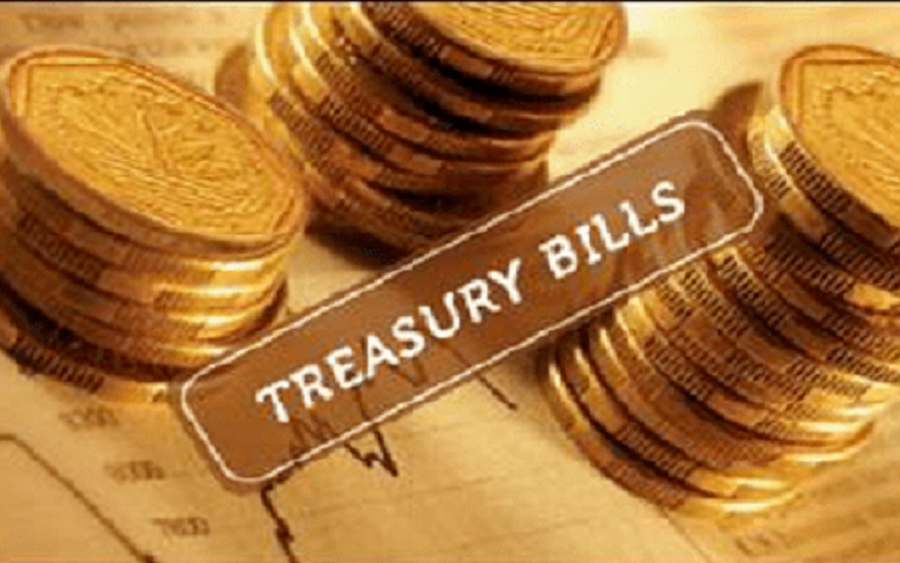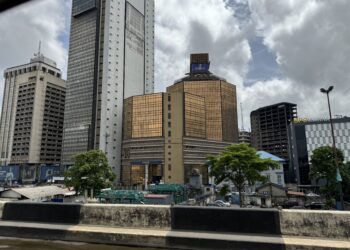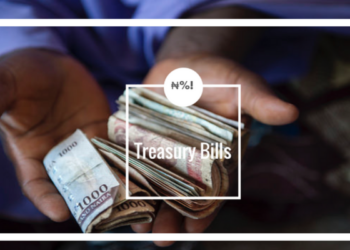As has been the pattern, I received an email from someone who said she had fallen in love with my articles, thankfully, not with me, and she asked if she should invest in Nigerian or Ghanaian Treasury Bills. I was like, what an audacious question!
One thing, good or bad, that technology has brought on us, through the internet, is that the World has become a global village. Now it is possible to send money from one part of the globe to the other in minutes, video calls with skype or WhatsApp and others are prevalent and instant. It is now easy to see things in real-time in faraway countries. With internet trading platforms, it is now easy to stay in one country and trade the shares and other financial products of another country, within limits of regulatory permissions. It is this “ease of doing business” on the internet that has prompted that reader to ask if it is more profitable to invest in Nigerian Government Treasury Bills or that of Ghana.
What are Treasury Bills?
Treasury bills are a form of IOUs issued by the governments of various countries aimed at monetary regulations and budgetary financing, among others. A lot of factors go into play in determining treasury bill rates, including the prevailing trend in yield curve, the financial or economic stability and creditworthiness of the issuing country, rate of inflation, political stability, among a long list of factors. Treasury bills come in terms of 91-day, 182 day and 364-day terms (corresponding basically to 3-month, 6-month and 1-year). Depending on trends in interest rate in relation to maturity dates, otherwise called yield curves, longer-term treasury bills are usually expected to have higher interest rates.

Ghana Vs Nigeria Treasury Bills rates
Between Ghana and Nigeria, Treasury bill rates differ. A 91-day Treasury bill in Ghana pays 14.685% while the same pays 9.5% in Nigeria. Likewise, a 182-day and 364-day treasury bills pay 15.14% and 17.91% respectively in Ghana but in Nigeria, they attract an interest rate of 10.45% and 11.5% respectively.
What does this mean?
What the above numbers mean is that looking at it purely from the interest rate point of view, Ghanaian Treasury Bills look more attractive than Nigeria’s, but that is not all that go into the decision-making process.
[READ MORE: Official: Nigerian Treasury bills calendar for September – November 2019]
Exchange rate and purchasing power parity
In Ghana, the medium of economic exchange is the Cedi while it is the Naira in Nigeria, therefore, to buy Ghana’s Treasury Bill, you will need the Ghanaian Cedi and when the Treasury Bill matures, you will need to reconvert the resulting Cedi into Naira for repatriation. There is therefore an element of interest rate risk involved in such cross-border investment because if the exchange rate moves against you, the gains from the interest rate differentials could be lost through exchange rate effects.
Political risk
Political risk is another risk that one may factor into the decision equation. Political risk is the risk that a change in government may result in a change in policies that may either make it difficult to repatriate the proceeds of your investment or affect your investment adversely. There are other risks in cross border investment like legal and sovereign risks. While legal risk is the risk of loss caused by an unexpected application of law or regulation, sovereign risk is the risk of possible restriction of assets imposed by a government.
Do the Math
Having looked at some of the issues or risks that may affect cross border investments, let us do the math and see how it pawns out. Assuming that you have Ten million Naira that you intend to invest in either Treasury Bills in Nigeria or Ghana, at the prevailing interest rates on various treasury bills. At the current Cedi/Naira exchange rate of one Cedi to N67.08, ten million Naira translates into 149,075 Cedi.
By investing N10 million in a 364-Day Treasury Bill in Nigeria, you will receive interest or return of N1,150,000 (at the rate of 11.5% Per annum) after approximately one year. In the same way, by investing C149,075, (which is the equivalent of N10 million) into a 364-day Ghana Treasury Bill, you will get a return of C26,692, (at a rate of 17.9051% per annum) which translates to N1,790,510 at an exchange rate of C1 to N67. Since Treasury Bills are issued at a discount, you need to invest N8,850,000 to receive N10 million at the end of 364 days in Nigerian Treasury Bill while you need to invest, C122,384 in Ghana Treasury Bill to receive C149,075.73 at the end of 364 days. If the exchange rate between the Cedi and the Naira remains relatively the same over the 364-day period, the C26,692 received from Ghana Treasury Bill which translates to N1,790,510, makes the Ghana 364-day treasury bill N640,510 more profitable on a N10 million investment.
Investment objectives
People have different objectives for investing. While so invest as a patriotic duty in their countries treasury bills others invest across borders in search of more return. Your investment objective should be your guide here.
[READ ALSO: Nigerian Treasury Bills: Learn everything about Tbills]

No arbitrage opportunity, after all
In international trade and finance, there is what is called the law of one price. That law states that in an efficient market with free flow of goods and services, a commodity should have one price regardless of what country it is purchased from. If this law does not hold, then the situation will present an arbitrage opportunity, where the commodity can be bought in the country with low price country and sold in a high price country. Given what has been uncovered with respect to Ghana and Nigeria Treasury bills, one may ask if it would be profitable to borrow money in Nigeria and invest same in Ghana treasury bills, repay the loan with interest, at maturity and pocket the difference. That would have been an easy way to benefit from the arbitrage opportunity, but unfortunately, the additional return is about 6.4% on a 364-day T-bill, a rate that is far below the lending rate in Nigeria. Therefore, the high lending rate makes the arbitrage opportunity nonexistent.
Disclaimer: Nothing in this article should be construed to be a piece of investment advice, the author is not an investment adviser and whoever makes an investment decision based on this article does so at his or her own risk, without any liability on the part of the author.






















Hmmm…quite interesting.
Nice article Uche but I was waiting for you to also bring up the fact that exchange rate risk in Ghana is higher than in Nigeria for now and for the past two years, given that the cedi has been depreciating to the dollar and the naira (it is more of a floating currency than the naira, which is managed). With the rate of depreciation, the return on the Ghana TB is probably less.
Nice article Uche but I was waiting for you to also bring up the fact that exchange rate risk in Ghana is higher than in Nigeria for now and for the past two years, given that the cedi has been depreciating to the dollar and the naira (it is more of a floating currency than the naira, which is managed). With the rate of depreciation, the return on the Ghana TB is probably less.
Thanks for your very truthful comment. I was going to connect the exchange rate risk when I talked about purchasing power parity but did not have enough to conduct a credible time dependent regression analysis to judge the fluidity or trend of the Cedi. Such exchange rate risk can be managed by going with short dated Treasuries although those attract less interest. Good comment though and that is why we are here, to exchange ideas and information. keep them coming
This is highly interesting, this is what younger generation should know about for a better future.. I’ll like to know sir, what will now happen to the real capital one invested in the TB after the term ended?
Read the article again bro, I think I saw he mentioned the fund are given at a discount.
@Ayo,
Interest is always paid up front. That means when you invest in tb, your interest will be paid the day you invest while your capital will be paid at maturity.
Please what’s the present TB interest rate in Nigeria?
Good job, Uche. However, I am at a loss about how you concluded that the 6.4% differential must be more than the lending rate to exploit the arbitrage opportunity.
The Interest Rate on the Treasury bill itself is a risk-free lending rate, which implies that big players like Banks can borrow at that rate plus some few bps spread and then reinvest the borrowed funds in Ghana.
If exchange rate risk is sufficiently hedged, there may truly be an arbitrage in there, leaving us with political, credit, legal and sovereign risks.
The calculation may be worth looking at deeply.
On second thought though, the market is sort, if there was an arbitrage, it would have been exploited.
***the market is smart..
Interesting read, however, you didn’t highlight the recent CBN circular on participants of Open Market Operation in Nigeria today.
The Treasury Bills market has moved
Nice one,we need more mobilization in any other sector apart from financial house. Thanks.